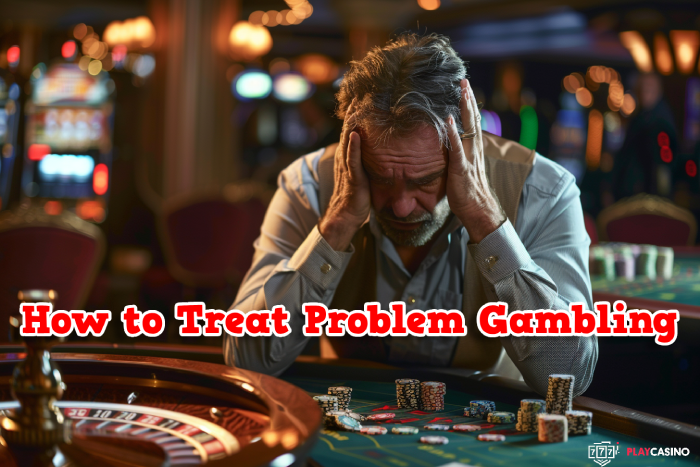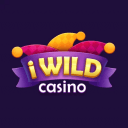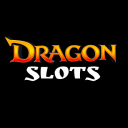How to Treat Problem Gambling
The entire gambling industry has been strategically designed to keep people engaged and interested for long periods of time. When the lights are constantly flashing at you, and the promise of another win is just around the corner, who wants to give up? There’s no doubt that betting is a fun pastime, but only when it’s undertaken responsibly. Finding it hard to stop once you start playing? You might be crossing over into a dangerous area known as problem gambling. If this sounds like you, read this article to find out what steps you can take to overcome this issue.

What is Problem Gambling?
You might also hear the words ‘compulsive gambling’ and ‘gambling addiction’ being used interchangeably with ‘problem gambling.’ All of these phrases refer to the same phenomenon. If you find yourself unable to stop gambling even when your budget has run out, or if you’re constantly chasing your losses, you might be gambling irresponsibly.
This occurs because gambling has a stimulating effect on our brains, just like a drug might, which sometimes leads people to make the wrong choices. While the activity is only supposed to be for entertainment, it can be problematic if you start using it as an escape from your everyday life. In situations like these, people are often on their way to become gambling addicts.
As long as you continue playing casually and responsibly, there’s nothing to worry about. But it is your responsibility to keep a check on your habits and seek help once you feel like something is off. Problem gambling is common, but it’s not the end of the world. With proper treatment and care, many individuals are able to overcome their compulsions healthily.
How to Recognize Gambling Addiction

The first step to treatment is to recognize that there is a problem. This might sound pretty elementary, but many individuals struggle with this, especially when spending multiple hours at the best online casinos. This can either happen due to a lack of awareness regarding the symptoms of problem gambling or because of a denial of their own habits. Here are some behaviors you need to watch out for, both in yourself and the people around you. If you witness any of these in yourself or someone you love, it’s time to seek professional resources because you may be gambling irresponsibly:
- Unable to stop playing even when your gambling budget runs out.
- Constantly dipping into your savings for more betting money.
- Excessive thinking about gambling activities and how to locate more money.
- Betting higher amounts of money just to get more thrill.
- Using gambling as an escape from the stressful parts of life.
- Unable to stop gambling even when trying to cut back.
- Feeling symptoms of withdrawal, such as being restless or irritated.
- Chasing losses, i.e., placing more bets in order to win back what you lost.
- Giving up professional engagements and social plans to gamble.
- Lying to family members and loved ones about your gambling habits or actively trying to hide them from the people around you.
- Taking loans to pay off the money you’ve gambled away.
- Feeling more stress rather than enjoyment when it comes to gambling.
Any of these symptoms might indicate a deeper problem, and they must never be ignored. If you want gambling to continue being an enjoyable activity that doesn’t stress you out, it’s crucial to catch problem gambling in its earlier stages.
Treating Gambling Addiction

Once you’ve understood that there is a problem, we move on to finding sustainable solutions. Seeking professional help is always a great idea, but there are also many other options that people have available to them. Here are some of the top ways in which gambling addicts can find help for their condition:
Getting a Diagnosis
Before you can access any particular treatment, you will need to get an official diagnosis of whether you have a gambling disorder and of what intensity. This evaluation will be carried out by a mental health professional, who will perform a psychiatric assessment of your gambling habits. You can expect to be asked questions regarding your gambling habits, along with any associated feelings and behavior patterns. Once the professional has a significant understanding of your case, they will inform you whether you have a disorder or not.
Seeking Therapy or Counselling
After getting a diagnosis, the mental health professional will also offer you multiple options, including therapy and counseling. Both of these pathways involve working with a professional to bring your gambling habits in check and overcome your compulsive behaviors. These methods will not only help you gamble more responsibly but, by proxy, will also help you improve your social relationships and financial health, both of which might have suffered due to your gambling addiction.
The specific course of action you take will depend on the type of therapy you receive. For example, cognitive behavioral therapy focuses on replacing unhealthy belief systems with healthy ones and overcoming gambling. On the other hand, behavior therapy focuses more on unlearning gambling-related behaviors and learning other valuable skills that reduce your betting urges. A professional can help you better understand which therapy pathway is the best for you.
Considering Medication
This isn’t for everyone, but some people can also benefit from using medication. If you have other mental health conditions that give rise to your gambling addiction or just coincide with it, you may benefit from taking specific medication for it. This includes any conditions such as depression, anxiety, ADHD, or even substance abuse. This is a conversation to have with your mental health professional, who will be able to better advise you whether medication is the right course for you.
Confiding in Friends and Family
Going through an issue like gambling addiction can be quite isolating, so it’s essential to find a support system that can help you get through it. These people can offer you emotional support when things get tough and also keep you on the right track when the gambling urges strike again. Find people you can trust so you don’t have to go through your recovery process alone.
Finding a Support Group
In addition to your loved ones, you also need people who know exactly what you’re going through, and this sort of community can be found through support groups. These include organizations such as Gamblers Anonymous, where you can connect with other individuals who are going through the same thing you are. This can help individuals find peer support while also better understanding their compulsive gambling behaviors. Sometimes, you need to hear from someone who knows what it is like to stand in your shoes, and support groups provide access to such people.
Investing in Other Hobbies
A huge part of gambling addiction is that gambling activities take up a significant chunk of your everyday life as well as social engagements. In order to stop yourself from getting a relapse, you need to find other hobbies to invest your time in. Whether you pick up a new sport or learn a new skill, you need a healthy activity to fill your days with, rather than reverting to gambling whenever you’re bored.
Additionally, it can also help you make social plans with your friends because you won’t need to rely on gambling to socialize. You can even start going to local events or join a club, both of which will allow you to connect with more individuals. The bottom line is that you should have other things that can keep you busy so you don’t have excessive free time to gamble.
Preventing Relapse
Even if you’re going to a professional and doing everything right, relapses can still occur sometimes. It is important for you to recognize which things in your life trigger you to gamble so you can find healthier coping mechanisms for them. Furthermore, online casinos offer several tools to limit or block your access to them, which you should utilize to cut off your access to betting.
Some people might want to shift to the free-play versions of these games just to get a taste of gambling, but that might not be the best option. The end goal of these demo versions is to attract you to the real thing, and the demo wins might even paint an unrealistic picture of the wins. Thus, it is better to stay away entirely. These small steps will make sure that even when your gambling urges are triggered, it’s hard for you to find a place to wager your bets.
Gambling Resources
Every country has a list of trustworthy gambling resources you can contact whenever you require help. Here are some of the most popular and reputable ones:
United Kingdom The National Gambling Helpline by GamCare, which can be contacted at 0808 8020 133. Canada GamblingTherapy, an online service providing emotional support for gambling addiction. New Zealand The Problem Gambling Foundation, which can be reached through text, call, or website. Australia The National Gambling Helpline can be called at 1800 858 858. Ireland GamblingCare, which can be connected through the website or by calling the National Helpline at 1800 936 725. South Africa The South African Responsible Gambling Foundation can be called at 0800 006 008 or texted at 076 675 0710.
Apart from these official resources, you can also look for chapters of Gamblers Anonymous in your city, or any other local gambling support groups.
Final Thoughts
Gambling addiction or problem gambling is a serious issue, but it’s not one that cannot be solved. With the right help, even the most serious of gambling addicts can learn to overcome their habits. All you need is consistency, determination, and access to the right resources. If you find symptoms of gambling addiction in yourself or someone around you, seek professional help before the issue gets worse. Catching the problem in its starting stages will allow you to deal with it in a better way.







